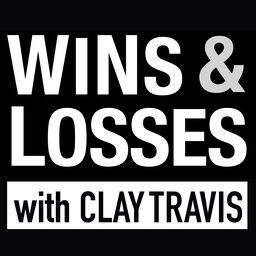Clay talks with Todd Fuhrman
This week on Wins & Losses, Clay Travis is joined by fellow Lock it In host Todd Fuhrman. Clay asks Todd about his life in Las Vegas and the steps he took that led him there. The two get into how Todd’s passion for sports gambling began, with some great stories involving Todd and his father. Todd speaks about his educational upbringing, his involvement in the game of hockey, where he played collegiately, and his early jobs he got following his graduation. Todd also explains how he went from working at a sports book to eventually becoming the TV and radio personality he is now, and how the landscape of sports media and gambling is growing at an incredible rate.
Learn more about your ad-choices at https://www.iheartpodcastnetwork.com
 Wins & Losses with Clay Travis
Wins & Losses with Clay Travis


